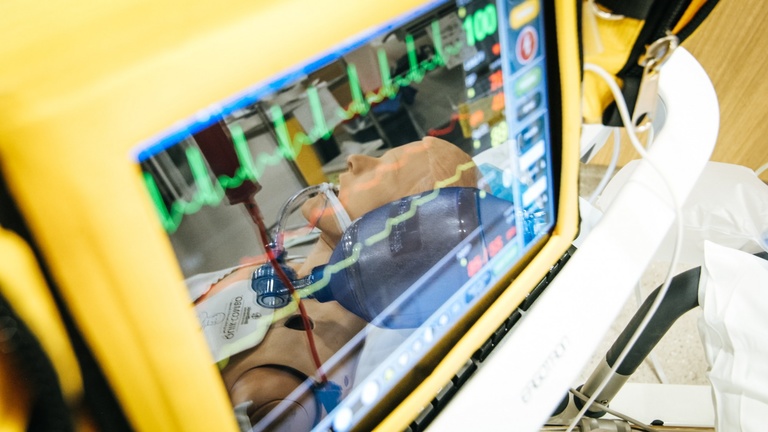
Chest pain, shortness of breath, and an irregular EKG are hallmarks of a heart attack. However, some people exhibiting these symptoms may actually be experiencing takotsubo syndrome (TTS), a weakening of the left ventricle. The majority of cases of TTS, which is more prevalent in women, are caused by acute stress, such as unexpected loss, serious illness, intense fear, or a violent interaction. During the COVID-19 pandemic, there has been an approximately 4.5-fold increase in the incidence of TTS cases.
Sometimes called “broken-heart syndrome,” TTS is temporary and reversible, unlike heart attacks, which kill about 655,000 Americans every year. However, when a person with TTS is misdiagnosed, they are unnecessarily subjected to invasive treatments and hospital exposure. And yet telling the two apart in the midst of trauma care can be challenging.
As part of an Obermann Interdisciplinary Research Grant, two University of Iowa faculty members, Xiaodong Wu, professor of electrical and computer engineering in the College of Engineering, and Kan Liu, professor of cardiovascular medicine in the Carver College of Medicine, are developing an AI model based on bedside echocardiography videos that can distinguish TTS from myocardial infarction. “This project will help us to seek the ultimate goal of improving (differential) diagnostic accuracy and efficiency to support frontline physicians’ decision-making under challenging clinical conditions,” says Wu.
The project necessitates combining expertise in computer science and cardiovascular medicine. Wu is responsible for developing and validating the AI algorithms, while Liu is responsible for collecting clinical and imaging data. By early July, they hope to have a proof-of-concept for AI’s ability to distinguish between the two diseases. They will complete and submit a manuscript with the intention of informing other practitioners of their method’s efficacy.